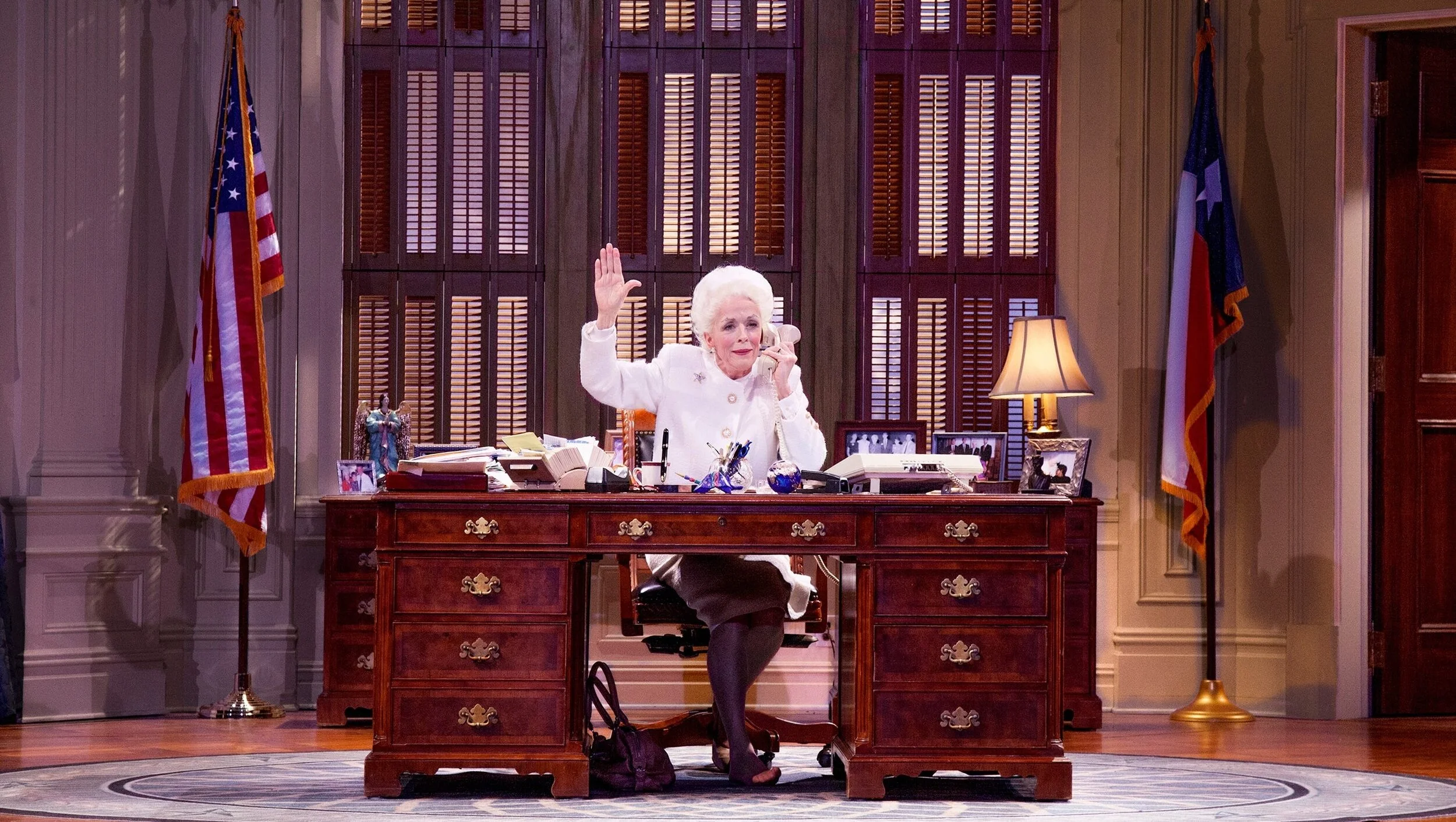Ann
Holland Taylor
Holland Taylor was last seen on Broadway 30 years ago in Moose Murders. I’m happy to say her latest production seems to be a bit more steady. Rooted in low, white and certainly sensible shoes, with high-puffed hair to balance it out, the one-woman play Ann, written by and starring Taylor, has firmly planted its heels at Lincoln Center’s Vivian Beaumont Theater.
Directed by Benjamin Endsley Klein and based on the life of Ann Richards, the notorious Texas Governor who died in 2006, Ann is a biopic of the woman’s personal and professional life, during which Richards rose from being a teenage housewife to working local politics while struggling with alcoholism to running the biggest state in the country. Needless to say, there is plenty of material.The play opens with Richards giving a speech at a college graduation, where she reminisces about her childhood and marriage and resulting entry into local politics. (Her husband, civil rights lawyer David Richards, was originally pursued, and Richards, who was standing nearby, was asked after her refused.) “I think I was standing at the sink,” she said of the moment.
Eventually the graduation stage set fades away, and her office slides forward. (The sets are designed by Michael Fagin.) There we witness a typical day in the office for Richards, where she fields numerous phone calls (several from Bill Clinton), struggles with her thoughts on the death penalty and arranges a family vacation, ordering some of her four children to be nicer to another during charades. She multitasks with the help of her assistant Nancy Kohler (voiced by Julie White, offstage) while tossing out some truly memorable (and profane) one-liners, much to the audience’s amusement.
We then see Richards after losing re-election to George W. Bush (who is never mentioned by name), working on the lecture circuit, moving to New York, and dying of cancer. (The set has returned to the lecture circuit by then, which is confusing for the narration; was Richards dead the entire time?) We are treated to not one but two codas that stretch the show, and its sentimentality, a bit too far.
While Ann does offer insight into the life of a fascinating woman, the script never seems to scratch farther than the sleek and well-heeled surface of Richards. I had hoped for unique insights into the politics and personal life of this woman who had achieved so much, but instead the show only mentions items of great importance in passing. Jokes about her mother’s demanding perfectionism are included, as her early obsession with being the perfect housewife. I found one of the more interesting lines to be, "I wanted to be everything for everybody," about her early years as a wife and mother, describing how she obsessively sought projects and tasks to stay busy and please her loved ones.
She does discuss her marriage ending, as well as her addiction to alcohol, in somber tones, but many of the more complex aspects of her life are glossed over with humor. When she wins the election for governor, she described herself as, “A ten-year sober divorced alcoholic woman, and a Democrat, no less!" to laughter from the audience. Her win was remarkable — why mask its achievement with comedy? Some of the more progressive moments in the show felt almost token to feminism, such as Richards yelling at a staff member to "loose her bangs" so people would take her more seriously, then buying cowboy boots as a gift for everyone on her staff. These almost felt like token "female" moments of a moody woman boss rather than elements of the script that humanize the politician. And while it was sweet and encouraging to hear her reminisce about her father saying she could do anything she wanted to, when she informs the audience at her now-famous 1988 Democratic National Convention speech that "two women [governors] in 160 years is about par for the course for Texas," I felt more frustrated than inspired.
Despite the script’s weakness towards the show’s conclusion, Taylor’s energy never seems to waver; as Richards she is a living, breathing and extremely vibrant woman onstage. Costumer Julie Weiss and wig designer Paul Huntley have physically transformed her into a remarkable resemblance of the former Governor, and her performance, which exudes dedication and enthusiasm, is one of great sympathy and thought. Taylor obviously loves and respects her subject, and that is apparent throughout the show. Despite a few wrinkles, Ann is certainly a love letter to Richards.

